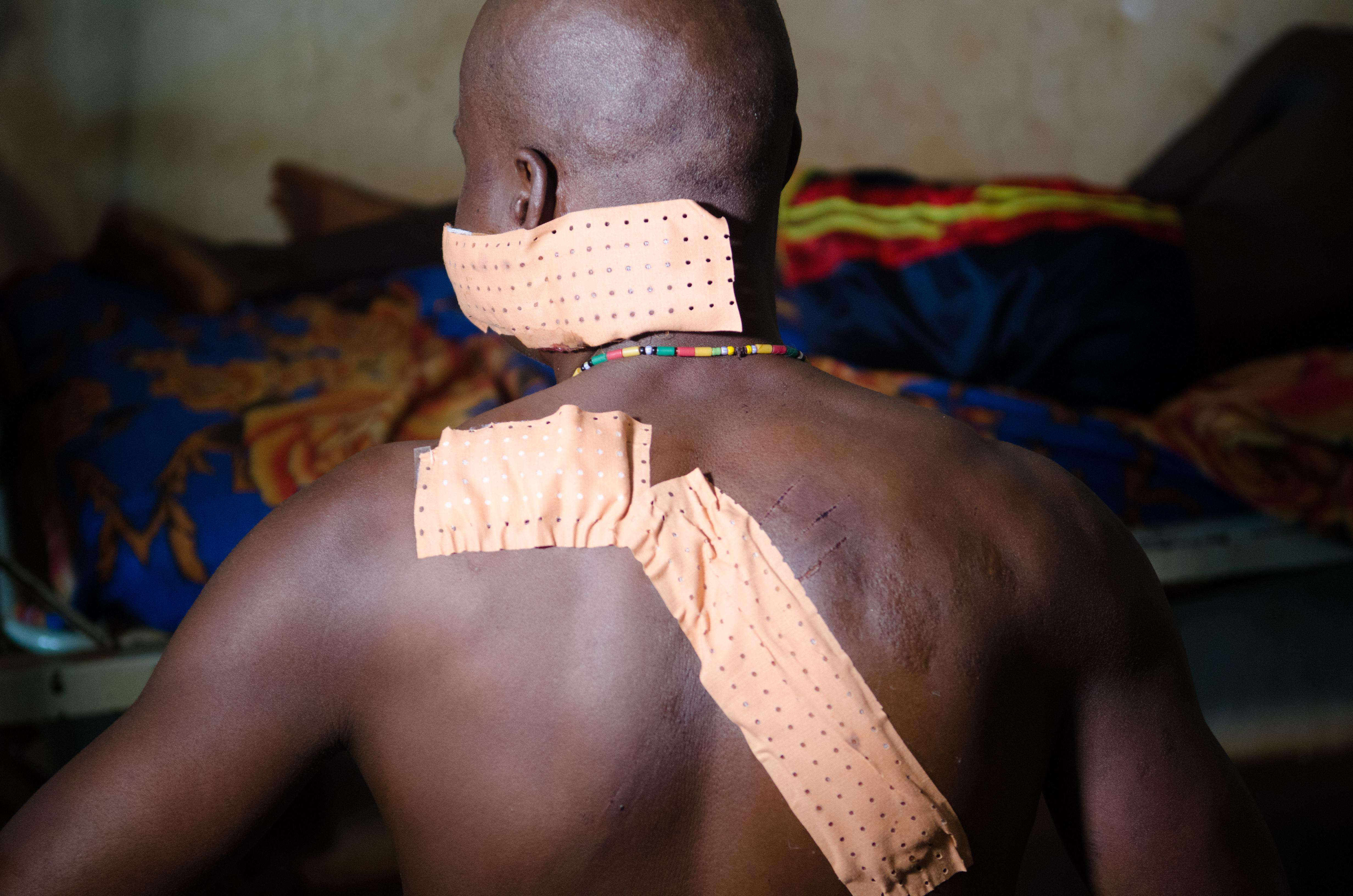The Central African Republic town of Bangassou had only been marginally affected by the devastating conflict of 2013–2014 and was even praised for the reconciliation work and social cohesion that followed that period of violence. However, on May 13 of this year, the town’s Muslim neighborhood was attacked by so-called self defense groups, and the situation changed drastically.
Bangassou has since become a ghost town controlled by loosely organized armed men. Most of the population has fled to Ndu, a point of trade on the southern bank of the Mbomou River in the Democratic Republic of Congo. Ndu now hosts more than 16,000 displaced people, in addition to its 1,000 permanent residents. The town is patrolled by armed men from these self defense groups who are too dangerous to photograph.
In Bangassou, about 2,000 Muslim people have sought refuge in the Petit Séminaire St. Louis. The church, which belongs to the Catholic Church, has been sheltering the displaced people since May, with little support from international organizations. In fact, fighting forced most humanitarian organizations to leave.
Today, only Doctors Without Borders/Médecins Sans Frontières (MSF) and the Catholic Church remain to provide services in Bangassou. The church does not meet the international requirements for the protection of internally displaced persons (IDPs), and, despite the presence of MINUSCA (a UN peacekeeping force), most Muslim people do not feel secure enough to leave the church or risk going to town, for fear of being killed by armed groups.
MSF runs mobile clinics to this area and therefore is able provide basic medical care to the IDPs. However, referrals to the MSF hospital in Bangassou, though possible, are very difficult. Some people in need of hospitalization simply refuse to be referred out of fear. MSF also runs mobile clinics in Ndu, where they encounter the same difficulties referring Muslim patients to Bangassou.
Because of the violence and the ongoing, massive displacement, the 115-bed hospital in Bangassou is only functioning at 60 percent capacity. A peripheral health center supported by MSF is now performing two to three times as many consultations as it did before this conflict broke out. However, due to the poor living conditions of displaced people, the lack of medical staff and supplies, and the fear that prevents people from seeking help earlier, many patients have arrived at the hospital in far worse conditions than the staff were seeing before the conflict. The MSF team at the hospital has noted a distinct increase in the number of patients suffering from severe malaria this year.
The situation is very volatile in and around Bangassou. Since the week of August 7, heavy fighting has been raging in Gambo, a town 47 miles west of Bangassou. There is little specific information about the situation there, but some wounded have arrived at the hospital seeking care.
Meanwhile, the health center in the town of Bakouma—84 miles to the north of Bangassou—is barely functioning because of violent fighting there in June and July. MSF had been supplying drugs and referring the wounded to Bangassou, but the last delivery registered in the health center in Bakouma dates from June 10, and pregnant women there are afraid to come to the health center for fear of renewed attacks.
Nzako, 93 miles north of Bangassou, remains out of reach for MSF teams, and news from the region is very worrying. Finally, conflict is also escalating in Zemio, to the east of Bangassou.
MSF has worked in CAR since 1996 and currently has more than 2,400 Central African staff and 230 international staff working in the country. Since 2013, MSF has doubled its level of medical support in response to the crisis. At present, MSF runs some 20 projects across the country, with medical teams providing free healthcare, including pediatric care, routine vaccinations, maternal healthcare, and surgery, as well as treatment for diseases such as HIV and tuberculosis.




